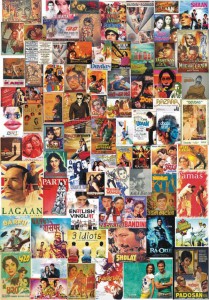Dadasaheb Phalke first procured the Williamson camera in 1912. Little did he know that it would change the life of India forever; for thereon began the onslaught of performative and creative talent across region, language and technology that created the phenomenon called ‘Indian Cinema’.
What makes Indian Cinema different, perhaps, is the diversity. Owing to the multitude of cultures in India, films across the country speak of different religious, linguistic, caste and gender contexts. Combined with this, the willing response to changing sound and film technology keeps them largely up to date. India’s diversity as experienced in day to day life reflects immensely on screen and in the myriad storytelling techniques adopted by the various film industries across the country. The fluidity of cultures is reflected in stories and cinematic treatment, which truly sets it apart from cinema the world over.
That the year 2013 will mark 100 years of Indian Cinema, is known to many. Celebrations of the centenary year have started since last year and collections of ‘filmi’ facts and figures have sprung up across internet, television, radio and print networks. CMAC’s effort to chronicle the glorious past of Indian Cinema may seem like yet another drop in the vast expanse of available material. However, through this initiative, CMAC looks to further the facts already known, magnify pictures already seen and recount with context the stories that have been told all along.
Do keep an eye out for our regular updates with interesting information, facts and anecdotes on Indian Cinema over 100 years. A special focus will be on chronicling interesting aspects of Indian film music and sound. Be it the entry of the talkie, the changing climate of playback singing and performance or technological changes in recording and dissemination, our effort promises to take you through an exciting journey of discovery of music and sound in the centenary year.
Join us as we take you through the historic journey of Indian cinema from its inception. Maybe it will match the history you already know. Better still, you could make our interactive forums on Facebook and Twitter your own by adding little nuggets of information, and relive the golden moments once again!

